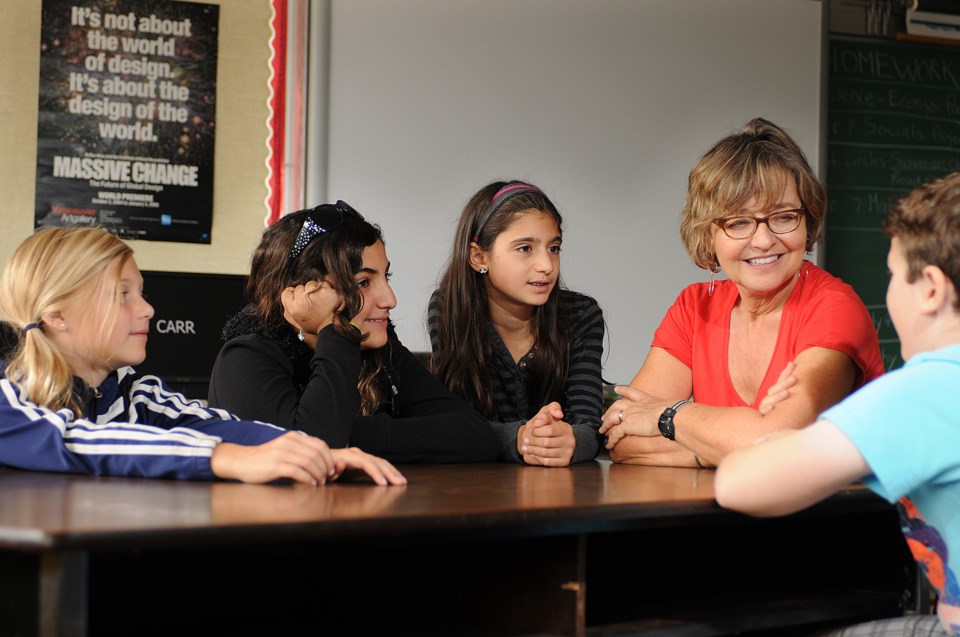A respectful hush blanketed the typically lively Forum at the PNE Thursday afternoon as the audience listened to former students of Indian residential schools. Only a portion of those who participated in the Truth and Reconciliation Commission of Canada’s British Columbia National Event could share such stories. Everyone else was there to listen.
Elementary school teacher Susan Angel felt badly the 26 Grade 6 and 7 students she’d brought to the TRC education day, which welcomed thousands of elementary and secondary students, hadn’t participated in hands-on activities before lunch. Her students from Emily Carr elementary at Oak Street and King Edward had watched the documentary A Sorry State and attended a class on stereotypes.
“Even though you know how kids like to do hands-on things, they were all actually really quite listening through the whole thing,” Angel said. “And it surprised me that they maintained that concentration and maybe they realize how important it is.”
Eleven-year-old Christine Keenlyside had “no clue” about Indian residential schools until she learned about them at school last year.
She discussed them with her parents afterward. “They said that they’re really bad and the last residential school was not that long ago and we need to start treating aboriginal people differently because they’re the same as us,” she said.
Keenlyside said that an aboriginal peer in her class said her grandfather had been taken away from his family “for a long time” to attend residential school.
Eleven-year-old Ronya Zadka said the session on stereotypes convinced her to think more before she speaks so that she avoids hurting anyone.
Trip volunteer and mother Jadine Cairns was struck by A Sorry State, which details how filmmaker Mitch Miyagawa’s family is possibly the most apologized to family in Canada, having received apologies for Japanese internment, the Chinese head tax and Indian residential schools, and explores what these apologies mean.It struck Cairns because her Chinese grandfather entered Canada, she believes, shortly after the head tax was repealed in 1923 and because as a Christian, she believes sorry should be an action, not just a statement.
“An action means not to just have money thrown at people, but it’s to change the state of being and to know that all people are created equal,” she said.
Tammy Moore, a 46-year-old aboriginal woman who was adopted as a baby by a Caucasian family, felt sapped after sitting in the story circle.
She tracked down information about her biological family and learned her mother had attended a residential school in Port Alberni. She also discovered her mother was 13 when she gave birth to her. Moore, who travelled to Vancouver from Courtenay for the TRC events, told a religious leader that her mother had attended residential school in Port Alberni.
“‘I’m sorry,’” she says he responded. “‘I’m so, so sorry.’”
Her son travelled to the TRC events with his school and Moore told him to listen and learn.
“I’m slowly trying to get him to learn about our culture,” Moore said. “I know nothing so from what I’m learning, it’s powerful.”
twitter.com/Cheryl_Rossi



